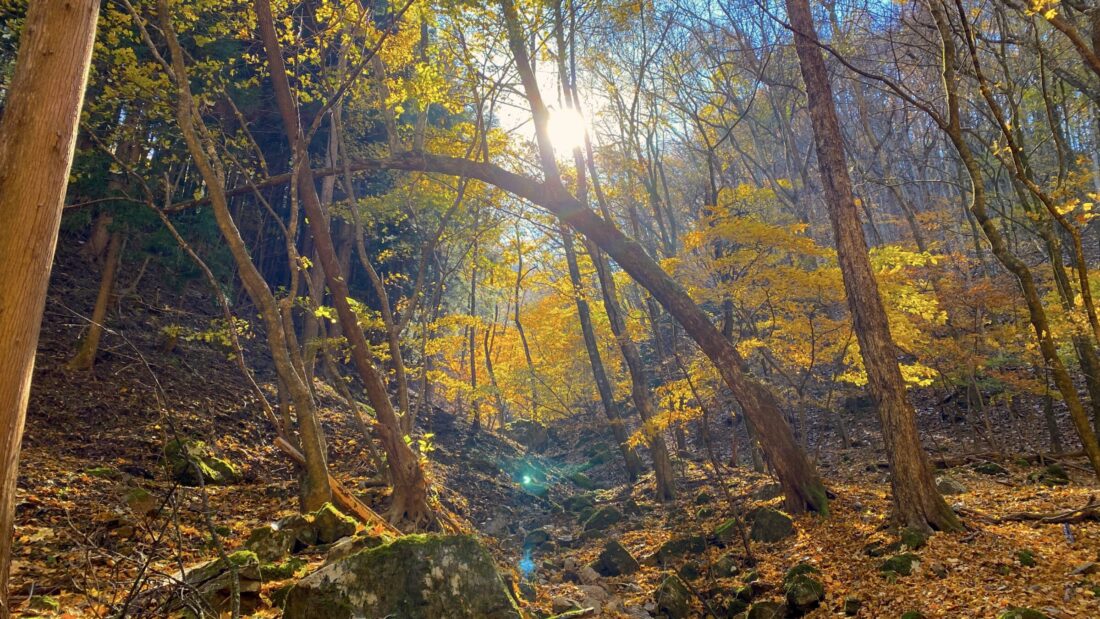
Uenomura Village sits at the bottom of a valley of many beautiful mountains. The trees turn vibrant colors in the fall, so it’s the perfect place to go hiking. This past fall we joined a tour that followed a lovely trail up Mt. Kasamaru, a 1,189 m mountain near the northern edge of the village. It took us about 5 hours including lunch and breaks. The trail wound through old growth Japanese larch and Japanese cedar forests, up a few rocky scrambles, and onto a craggy peak with views of foliage-covered ridges and valleys on all sides.
Mt. Kasamaru Hiking Tour
| Time | 4-5 hours |
| Difficulty level | intermediate |
| Trailhead | https://goo.gl/maps/19JCmsELFj9myCTz8 |
| Tour meeting location | Kawa No Eki Riverside Visitors Center at 9:30 AM OR Takasaki Station (East Exit) at 8:00 AM |
| Price | ¥5,000 (price may vary depending on the course and season) |
| Group size | 6 – 20 people |

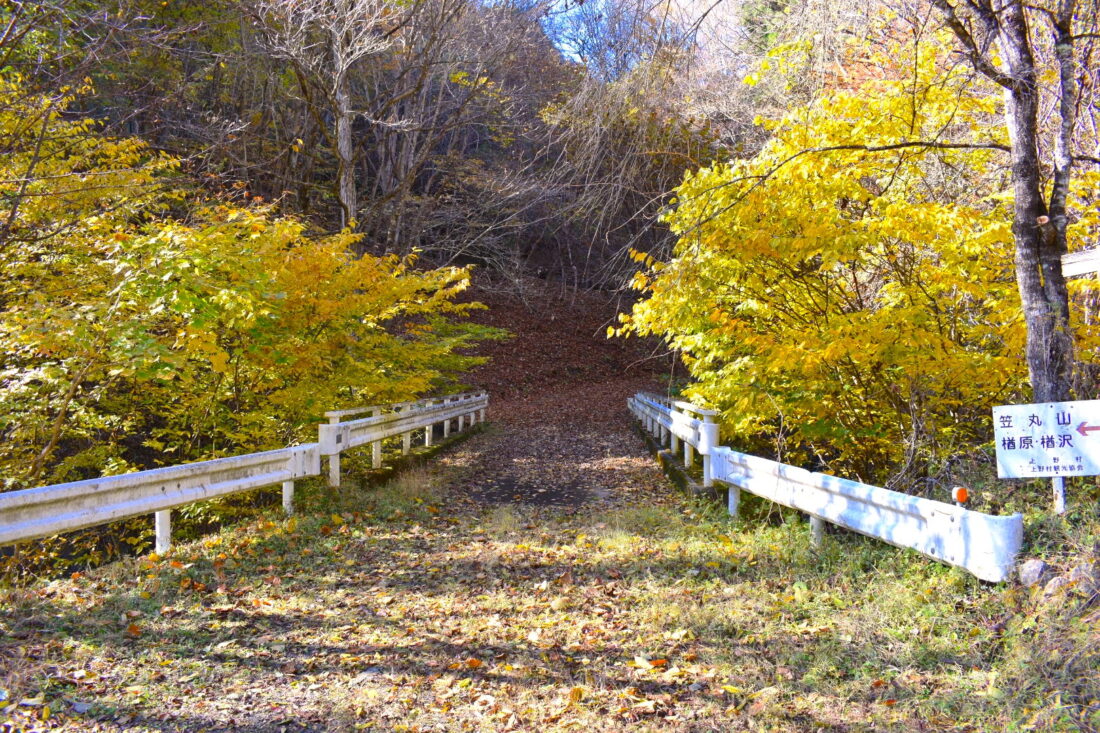
The course starts at a bridge across a small stream. The trail is wide and gentle for the first 30 minutes, following the shaded stream.
After a bit, we were stepping over small rocks and the occasional fallen tree as we continued forward. Some of this is damage from the typhoon that struck Uenomura two years ago. It was not the smoothest path, but it added an extra sense of adventure.
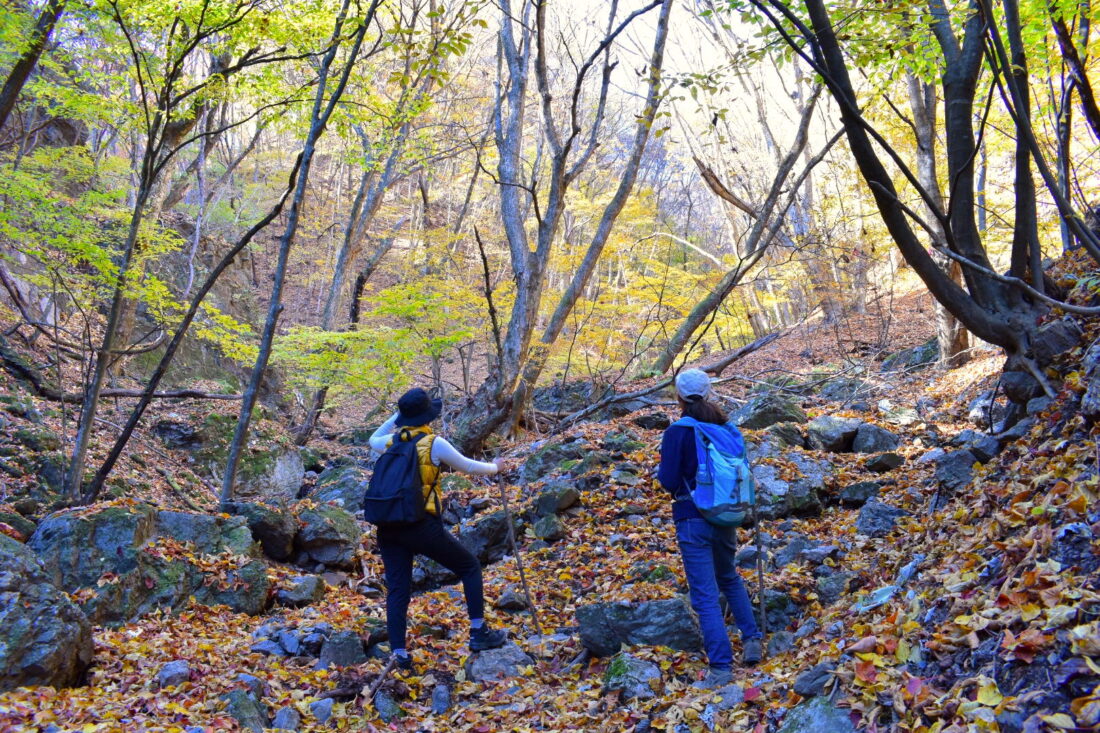
There were no English trail signs, but there’s really only one trail, so don’t worry: if you see any signs, or even anything that used to be one, you can bet you’re on the right path!
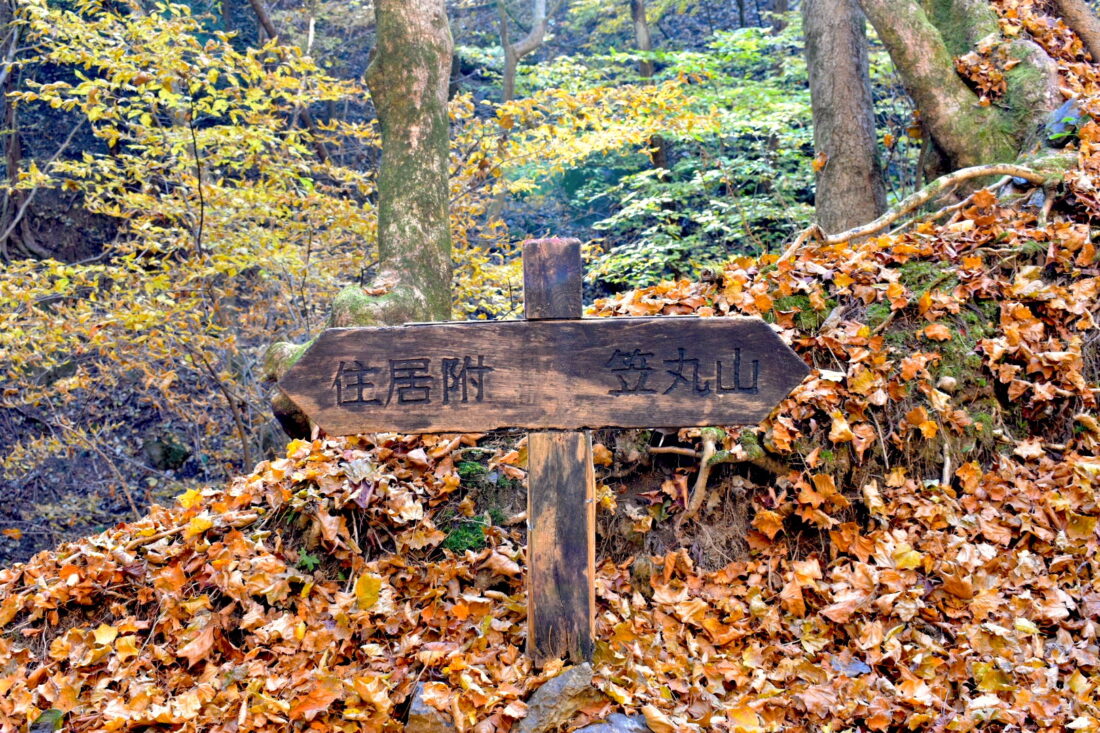
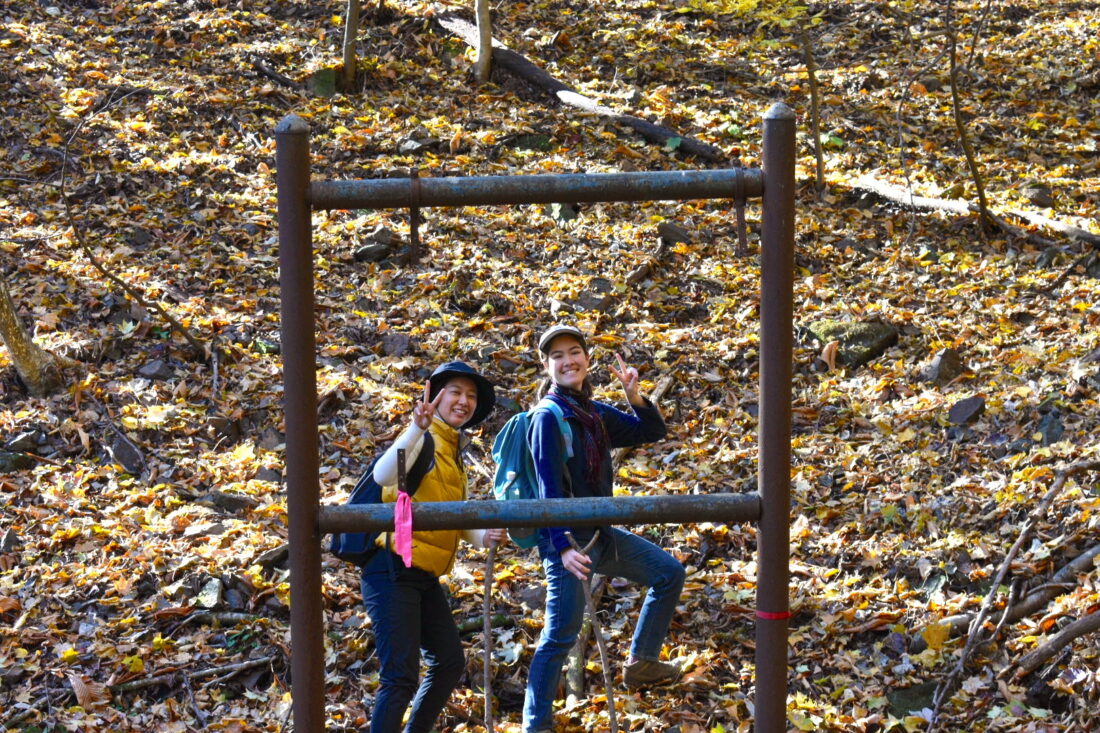
The trail got narrow as it zigzagged up the slopes of the mountain. Eventually, we emerged at Jizo Ridgeline, marked by a cute little jizo statue with a knit cap at the bottom of one of the mountain’s largest and oldest oak trees. This was the perfect place to break for a snack before turning left onto the wide trail on the other side of the ridge.
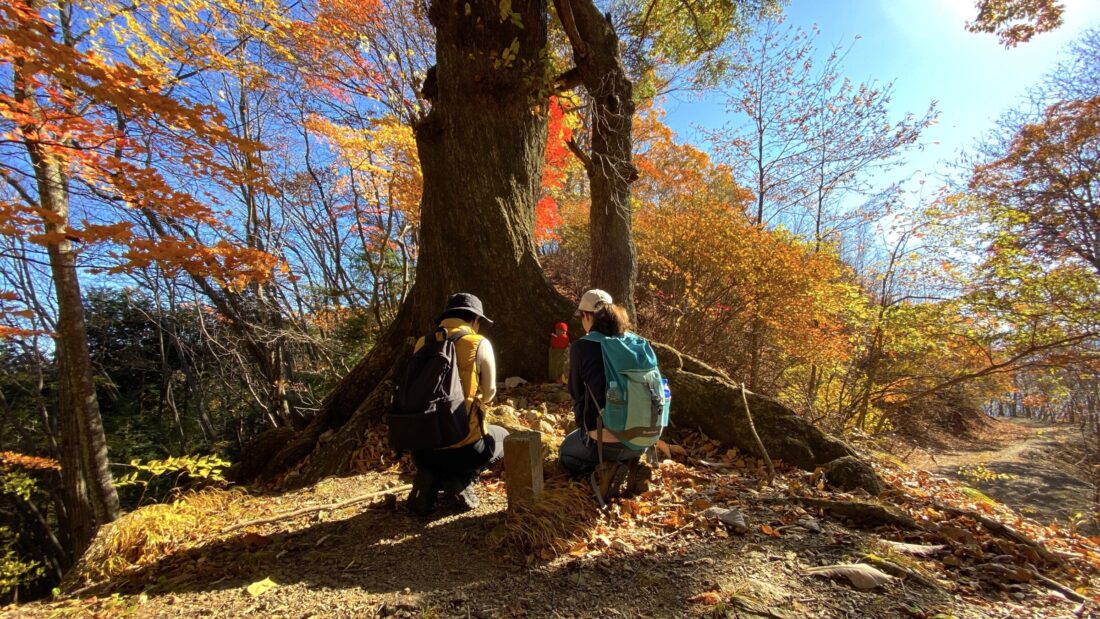
(If you see this sign, turn left to follow the course for 笠丸山 (kasa-maru-yama). The character at the end should look like a W or a trident—it means mountain, by the way)
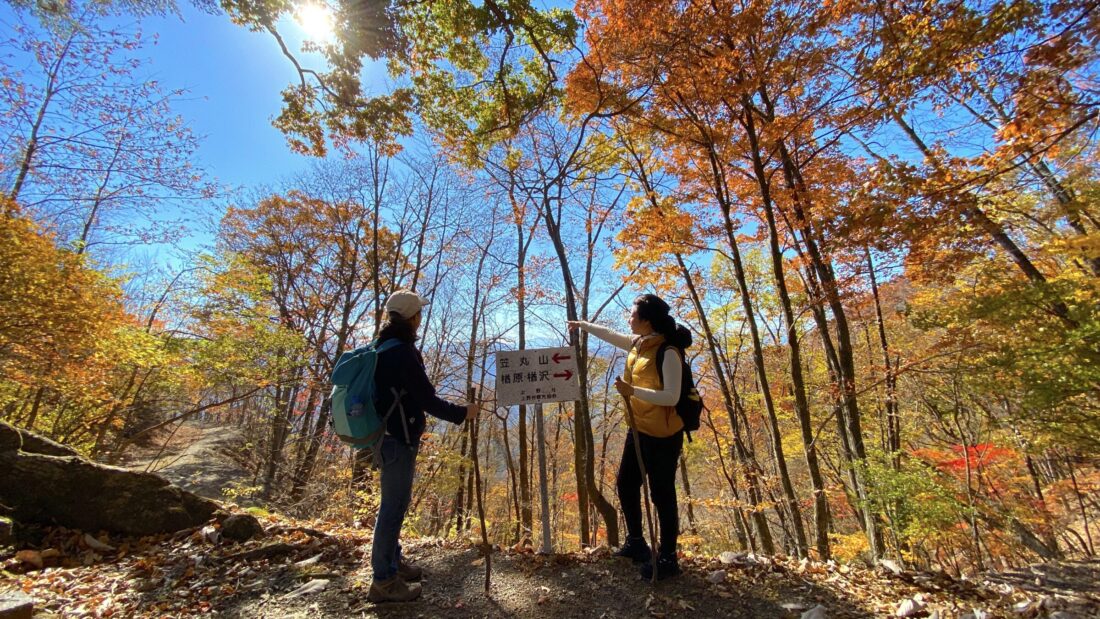
The trail got narrow again, and eventually turned into an uphill scramble through some bushes. When we dared to glance behind us though, we got to enjoy our first views of the surrounding mountains.
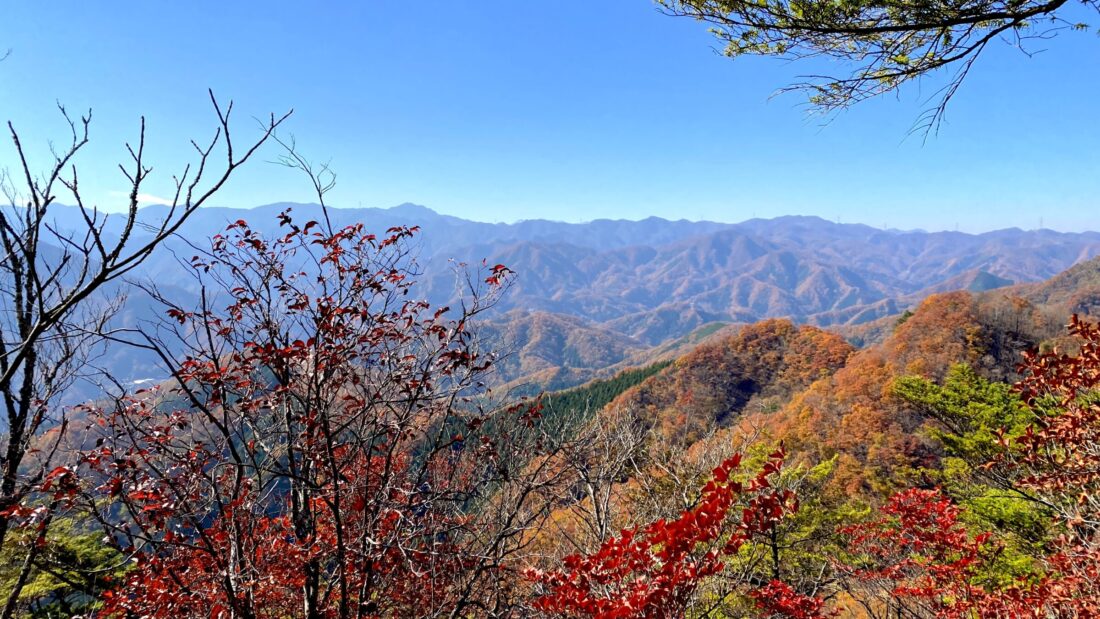
The next part of the trail involved some climbing up steep rock faces and ledges. There were ropes fastened the whole way up—the flipside of somewhat treacherous Japanese trails is that they often feature thoughtful touches like this. Always remember to test each rope before you rest your weight on them! They are often well-maintained, but you never know. When we went, the ropes proved steady.
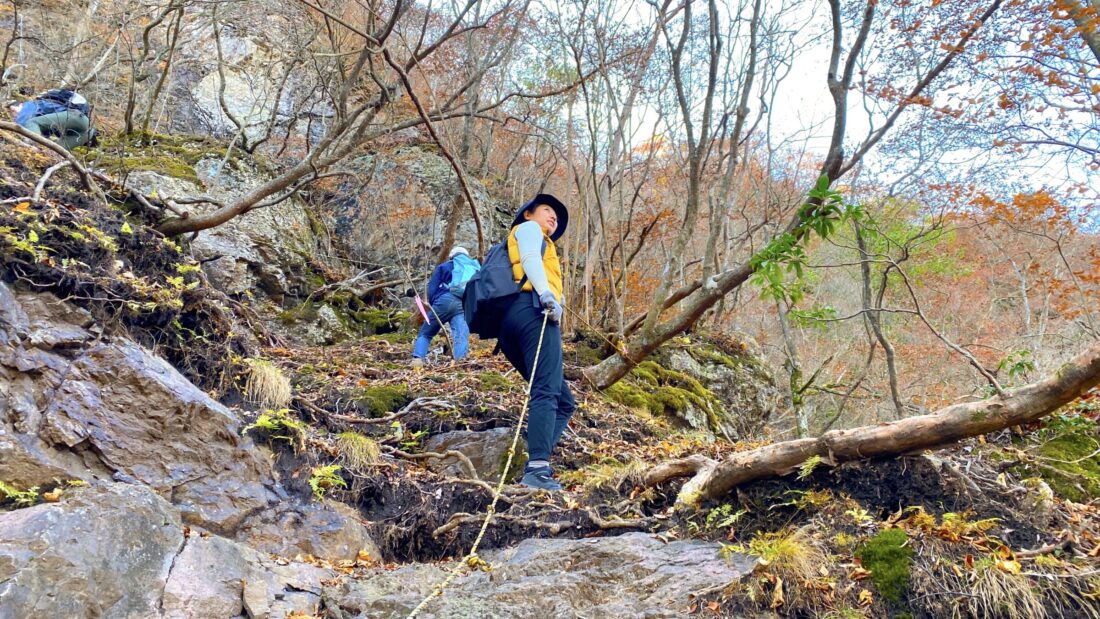
It takes a bit of courage, but no technical skill required.
At the top of the scramble, we followed the rope to the left and emerged onto the summit. Check out those views!
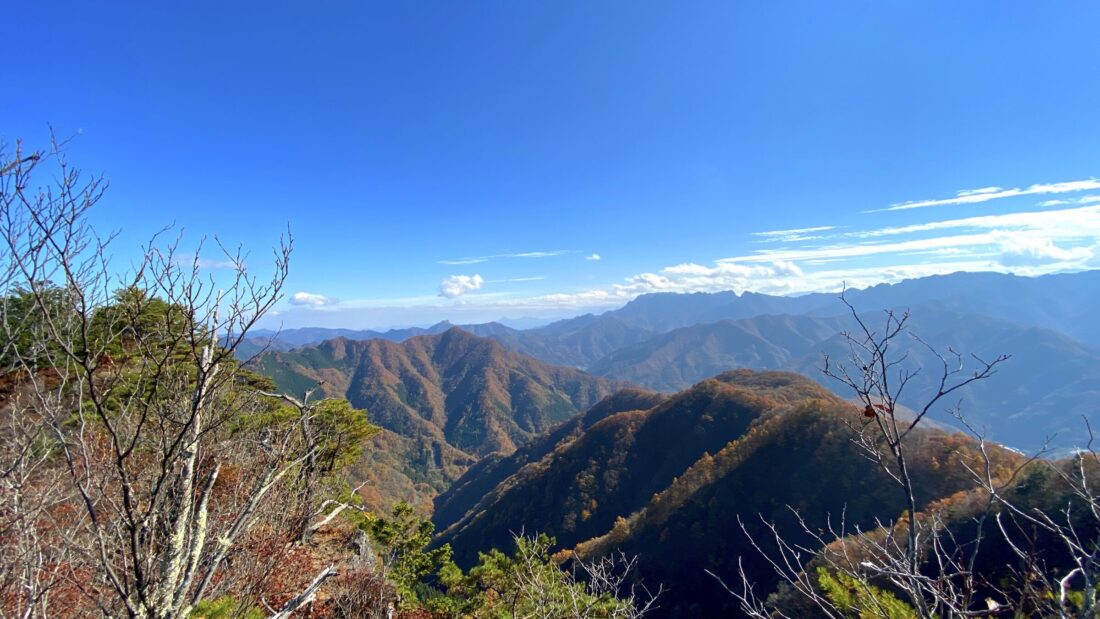

This was also the perfect spot to enjoy a classic mountaintop lunch. The tour comes with a bento lunch of rice balls and karaage fried chicken. It was simple but delicious, easy to eat, and full of calories to keep us going on the way down
Once we had rested up and refueled, we continued on towards the second half of the loop trail. There was a mini shrine and a pink ribbon to mark the start of the descent through a little hole in the bushes.
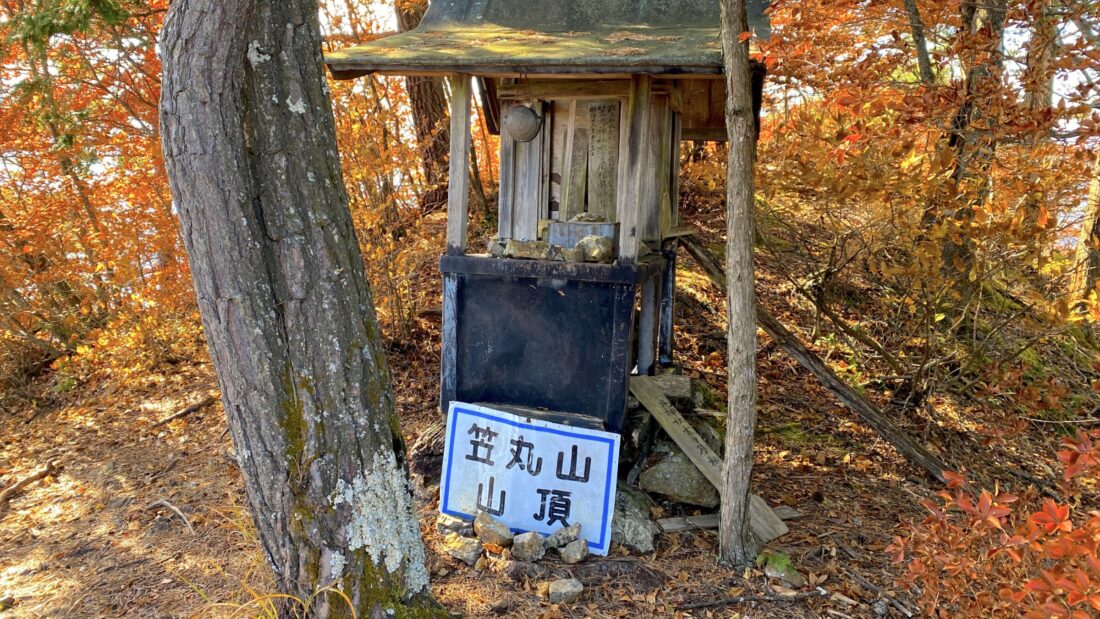
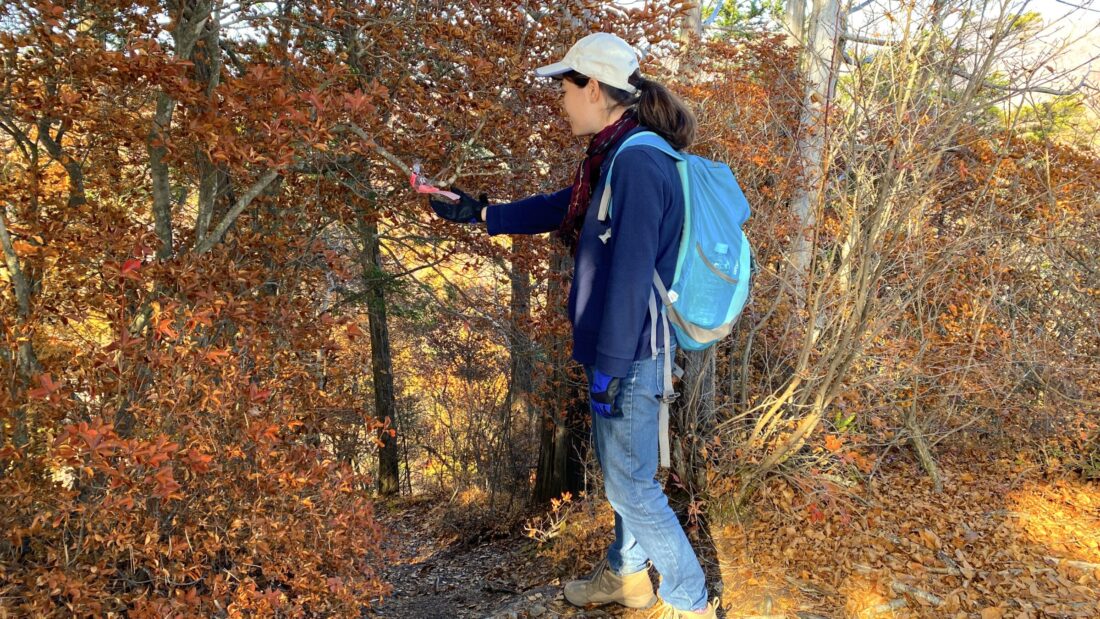
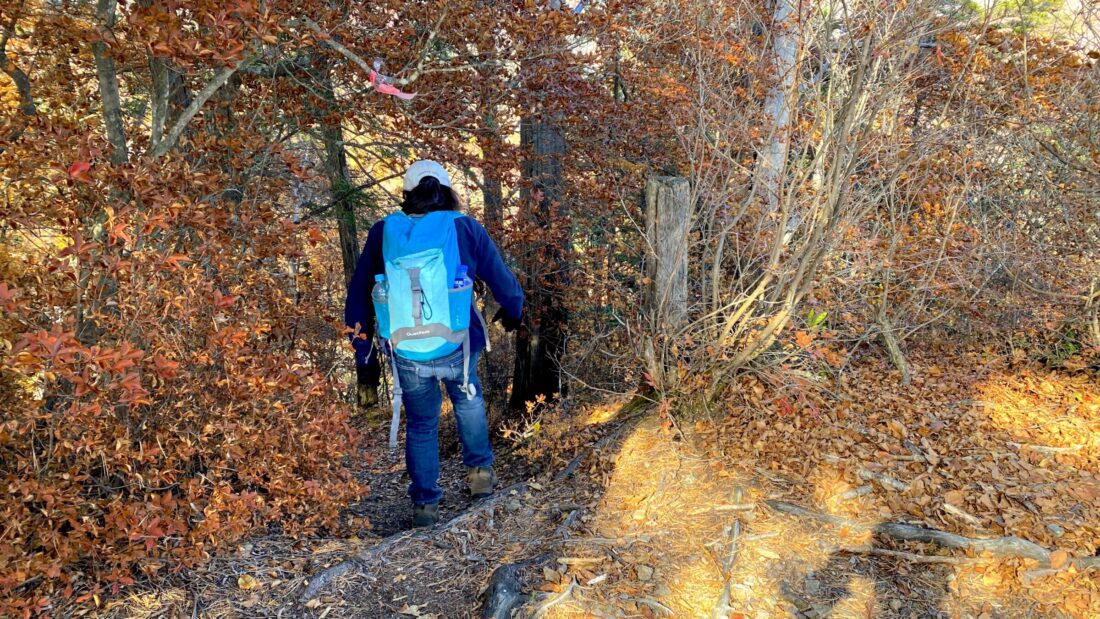
There was some steep scrambling down here too, and then a long section of wide slope that was a little slippery with the leaves, but fortunately there were more ropes here too. Hiking poles would have come in handy here, so I would recommend that anyone thinking of tackling this trail consider bringing some. We found some sticks along the way that helped a little.
Over sprawling tree roots and through towering pines, we made our way back down to the bottom. Whooo! Give yourself a pat on the back.
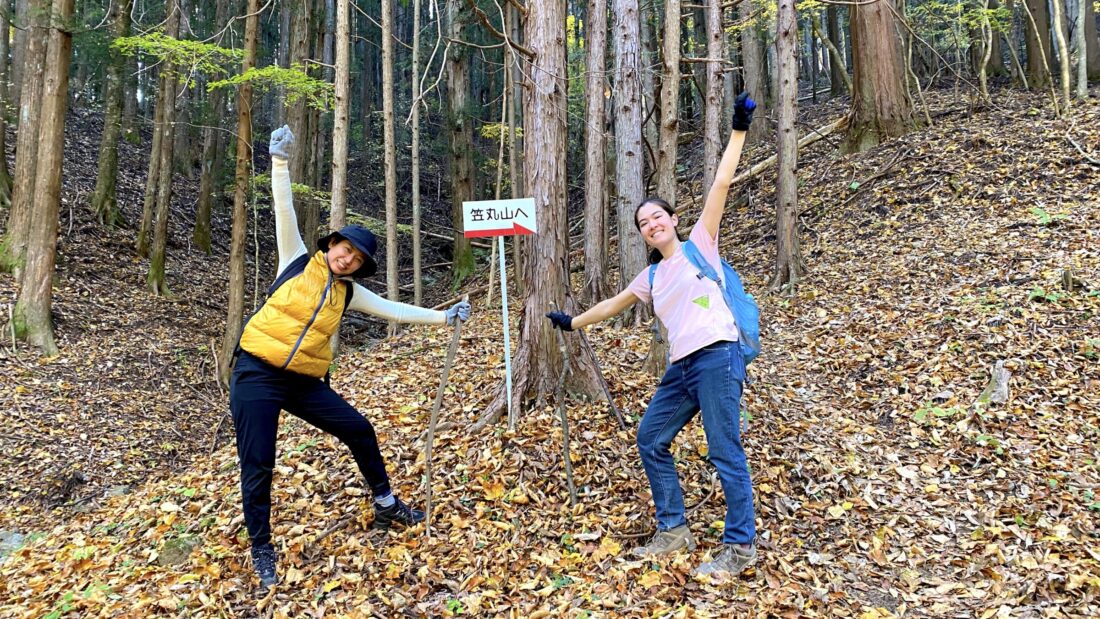
The ending trailhead let us out onto the road south of where we started. After turning left and walking along the road about 10 minutes, we arrived back at the car.
Overall, a nice hike with varied terrain, and a forest almost completely to ourselves: I could count on two fingers the number of other groups we passed by. You’ll need a bit of an adventurous spirit to trek through the at-times narrow and scrambly trail, but well worth the effort.
Mikabo Super Rindo Observation Deck
Once we got back to the car, we headed for one last stop: the Mikabo Super Rindo Viewpoint Deck, about a 30 minute drive north.
The views were easily as good as from the top of Kasamaru, but with much less effort—a great little add-on to the end of the day.
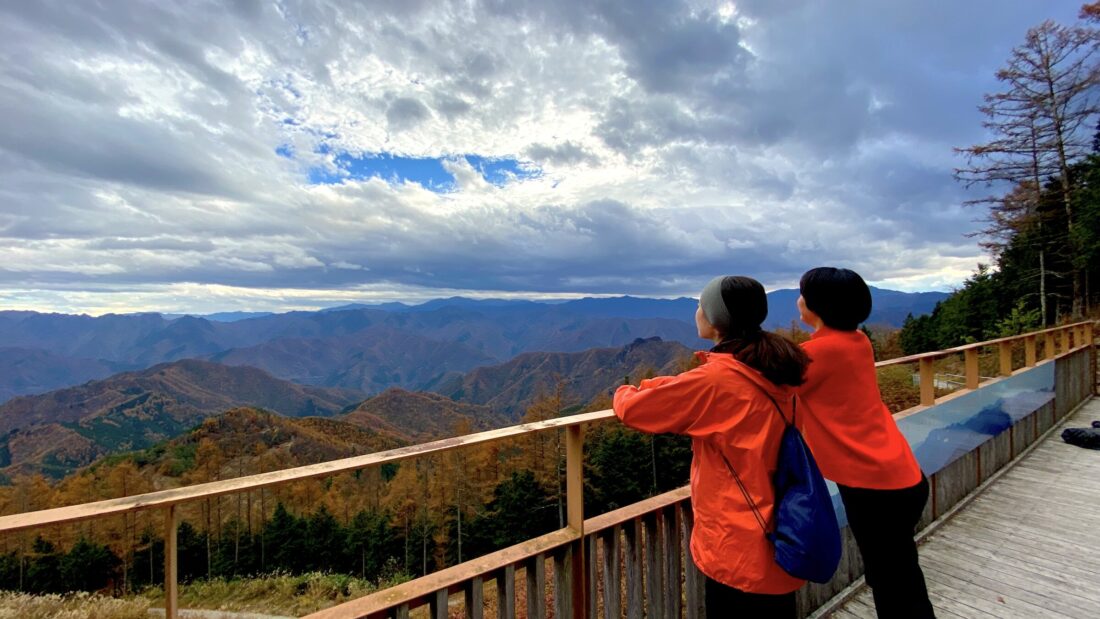

Mikabo Super Rindo Observation Deck
| Map | https://goo.gl/maps/cpGV9gvvw6Ub3nJx5 |
Fujinoya Guesthouse
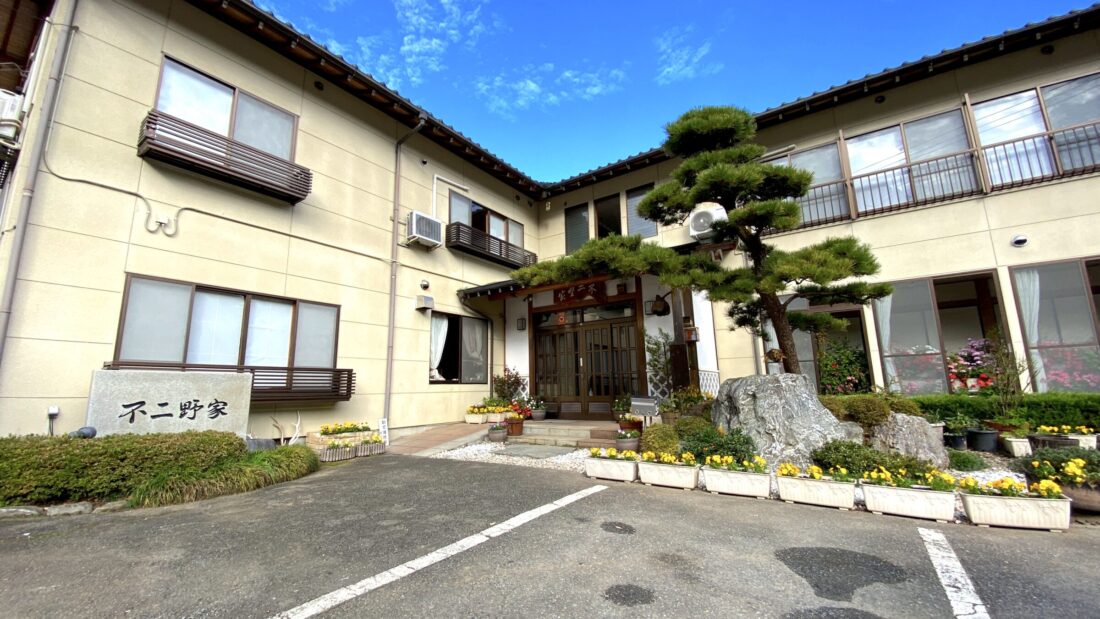
After an eventful day, it was time to head to our accommodations. Fujinoya Guesthouse is a traditional Japanese bed & breakfast run by one of the village’s old hunting hands. A lively and idiosyncratic host, he is a skilled taxidermist and displays his creations in the lobby of the guesthouse.
The dinner included with a stay is a feast’s worth of traditional Japanese kaiseki cuisine, and the center of the meal is fresh game meat, usually caught that day. The owner will instruct you on how to grill it yourself on a mini hotplate. The day we stayed, there was fresh venison and wild boar, supplemented with local inobuta pork (a cross between pig and wild boar meat). It was a bit daunting to grill is ourselves, but in the end, it was delicious!
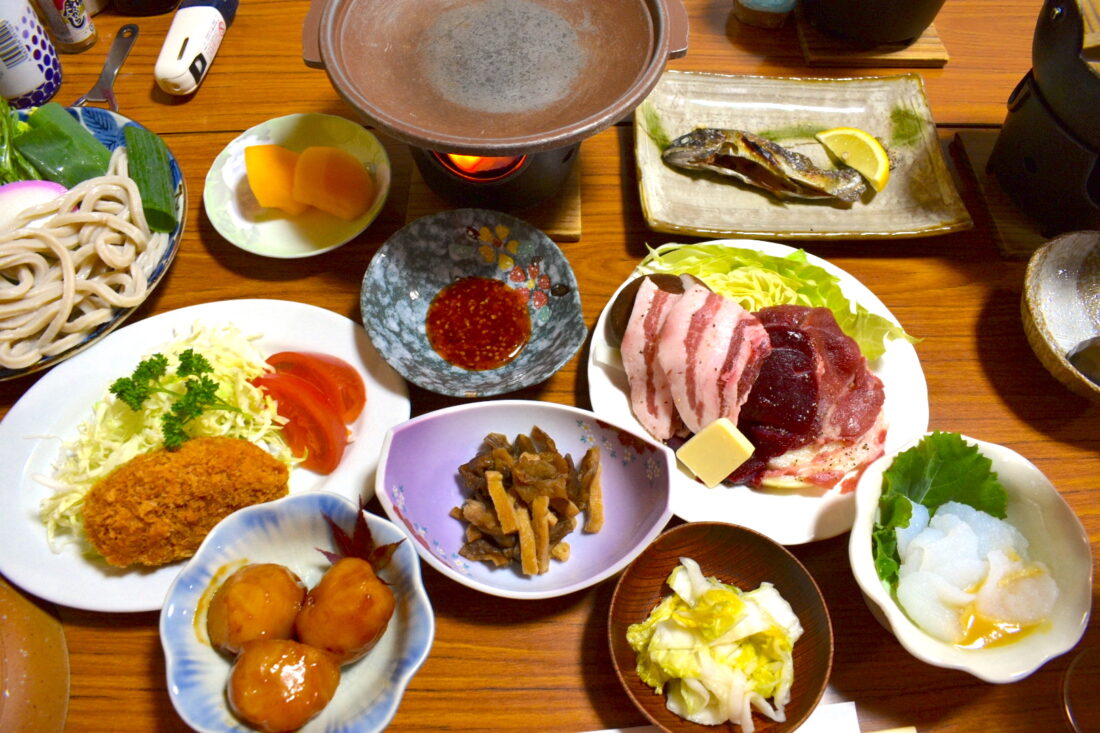
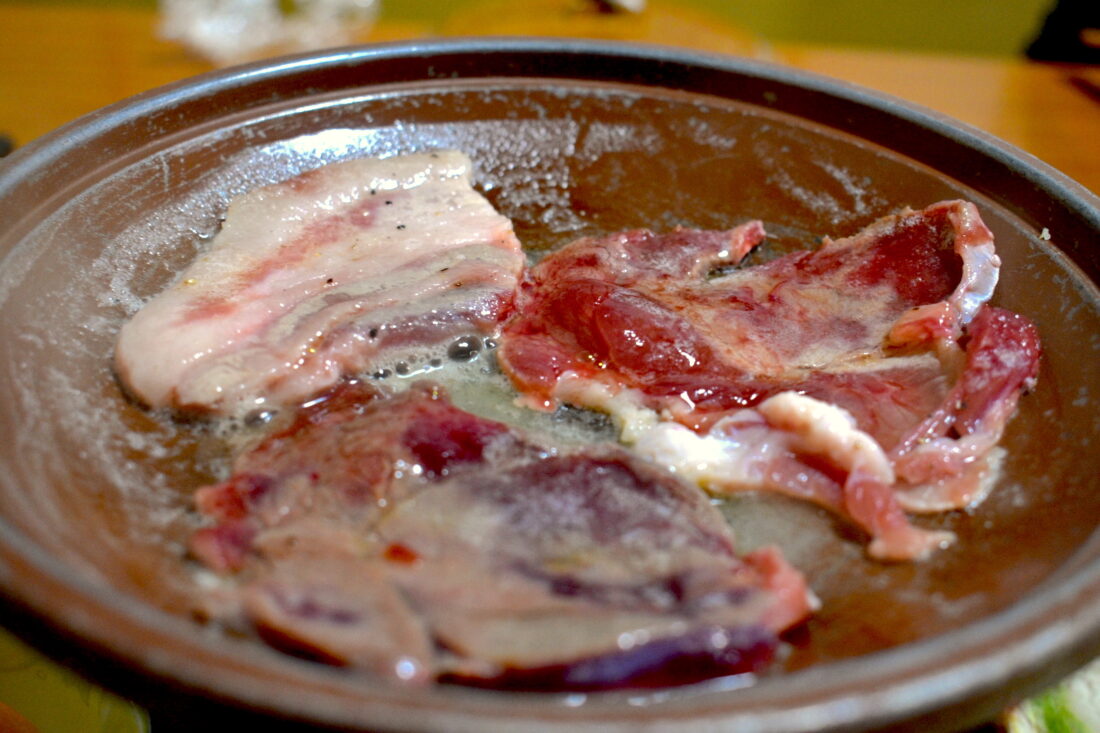
The guest rooms were traditional Japanese style futons on tatami flooring; simple but comfortable. There was a kotatsu in the room as well—i.e. a heated table that keeps your legs nice and toasty while you sit at it—which was a nice touch during a chilly autumn evening.
Fujinoya Guesthouse
| Address | 134 Kawawa, Ueno, Tano District, Gunma 370-1614 |
| Hours | Check in: 3:00 PM Check out: 10:00 AM |
| URL | https://m-fujinoya.com/ |
More Fall Itineraries
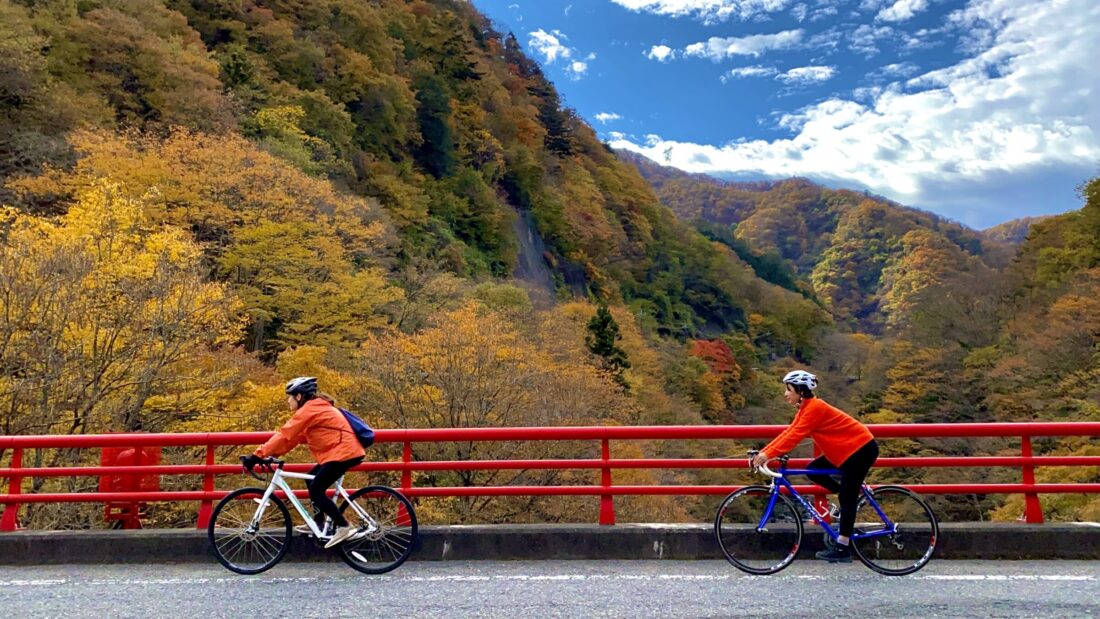
Fall Cycling Route in Uenomura: Down the Old Main Road
Take a leisurely bike ride down a scenic paved road through old Japanese neighborhoods and forested corridors bright with fall colors.
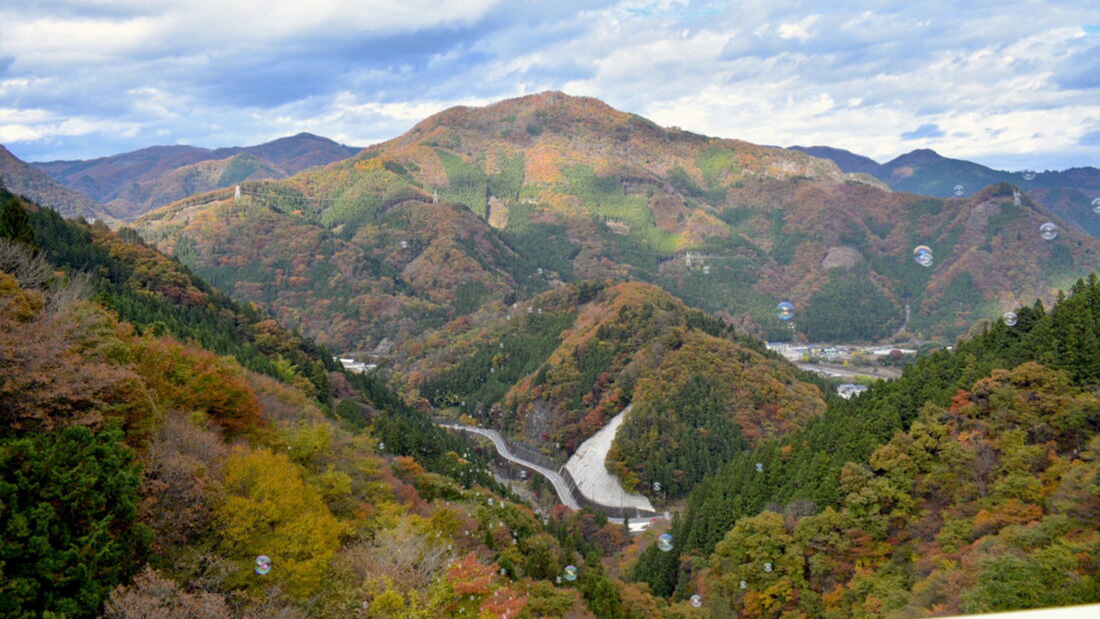
Fall Fun for the Whole Family: 1-Day/1-Night Itinerary
Activities and sightseeing the whole family can enjoy amid the village’s beautiful fall colors.